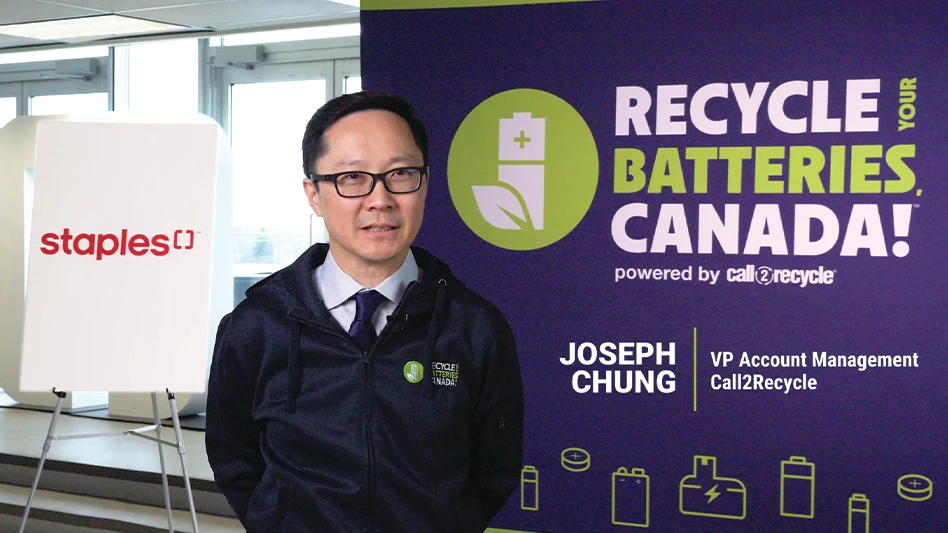Pricing for many recycled plastics appears to be softening as the thermostat rises. In the last two months, prices for various recycled plastics have been trending downward, according to sources.
This decline is in response to the downward trend in pricing for virgin plastics, a West Coast-based reprocessor says, which is influenced by declining prices for crude oil and natural gas.
“Pricing has come down dramatically,” a reprocessor based in Illinois says, adding that pricing for PP (polypropylene) regrind has declined by 25 cents since early May.
While engineering resins are faring better in terms of pricing, commodity grade plastics are less complex to make and their prices correlate more strongly to crude oil pricing, he adds. “Highly engineered materials are less vulnerable to this kind of thing than commodity grade materials,” the reprocessor says.
“A lot of commodity resins are being consumed offshore,” he adds, noting that the export market has not been aggressively buying this material from the U.S. recently.
 At the 2012 Bureau of International Recycling (BIR) World Recycling Convention in May, Plastics Division Chair Surendra Borad of Belgium-based Gemini Corp. N.V., reporting on behalf of Gemini’s U.S. office, said, “The export of PET from the United States has come to almost a standstill as export prices have dropped by around $150 to $200 per metric ton.” He continued, “Still, the domestic U.S. market for PET is stable and, hence, most materials are going to domestic destinations.”
At the 2012 Bureau of International Recycling (BIR) World Recycling Convention in May, Plastics Division Chair Surendra Borad of Belgium-based Gemini Corp. N.V., reporting on behalf of Gemini’s U.S. office, said, “The export of PET from the United States has come to almost a standstill as export prices have dropped by around $150 to $200 per metric ton.” He continued, “Still, the domestic U.S. market for PET is stable and, hence, most materials are going to domestic destinations.”
The Illinois-based reprocessor also characterizes domestic demand as somewhat soft as of mid-June but adds that the softness is more pronounced in the export market.
He says there is some reluctance on the part of consumers to buy material because they are unsure where prices will land.
Borad indicated that export markets are not necessarily better than U.S. markets, commenting that “demand from India is very low.” Factors causing the weak Indian demand, according to Borad, is the depreciation of the Indian rupee by 10 percent in one month and freight rates from Europe to India that have increased by 150 percent.
Generation of scrap is increasing, according to a Michigan-based reprocessor of engineering grade thermoplastics, in light of increased auto production and general manufacturing.
He characterizes demand for engineering grade material as good, adding that PP (polypropylene) and PE (polyethylene) also are in high demand.
While demand and pricing has fallen off for plastic scrap in 2012, Borad talked of encouraging global trends during the World Recycling Conference.
He noted that Saudi Arabia-based petrochemical giant Sabic has started into the “business of reprocessed plastics in a rather big way.” Borad added, “Market forces and market sentiments have compelled the leading petrochemical producers to think of reprocessed materials as complementary to existing business. This is very positive news.”
Sponsored Content
Labor that Works
With 25 years of experience, Leadpoint delivers cost-effective workforce solutions tailored to your needs. We handle the recruiting, hiring, training, and onboarding to deliver stable, productive, and safety-focused teams. Our commitment to safety and quality ensures peace of mind with a reliable workforce that helps you achieve your goals.
He also indicated that there would be a five-fold increase in plastics from waste electrical and electronic equipment (WEEE) in the next seven years, reaching 10 million metric tons.
(Additional information about secondary plastics is available at www.RecyclingToday.com.)
Get curated news on YOUR industry.
Enter your email to receive our newsletters.

Explore the July 2012 Issue
Check out more from this issue and find your next story to read.
Latest from Recycling Today
- SABIC’s Trucircle PE used for greenhouse roofing
- Hydro to add wire rod casthouse in Norway
- Hindalco to invest in copper, aluminum business in India
- Recycled steel price crosses $500 per ton threshold
- Smithers report looks at PCR plastic’s near-term prospects
- Plastics association quantifies US-EU trade dispute impacts
- Nucor expects slimmer profits in early 2025
- CP Group announces new senior vice president








